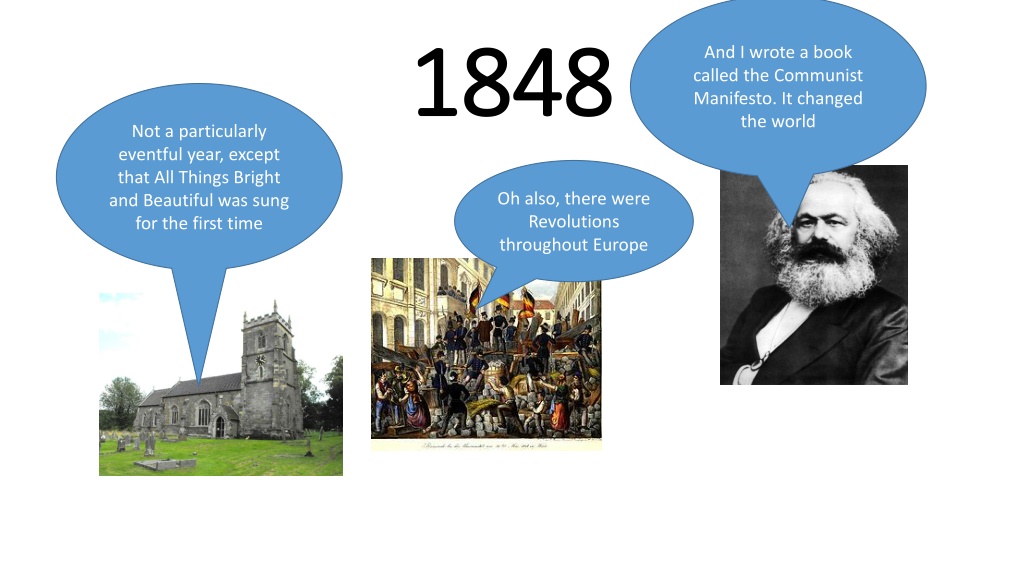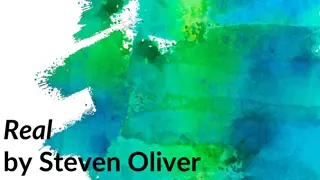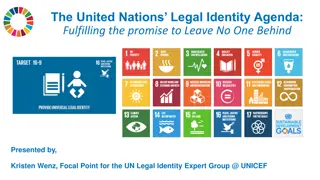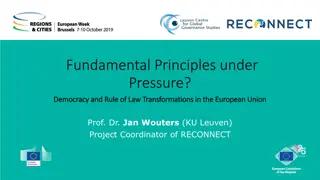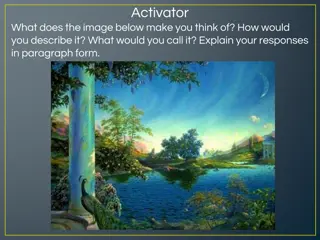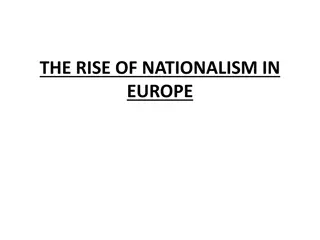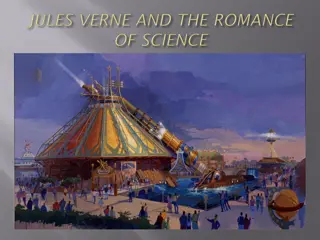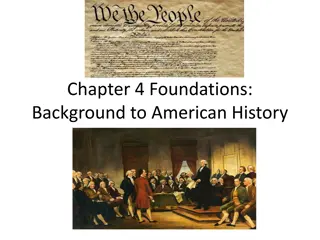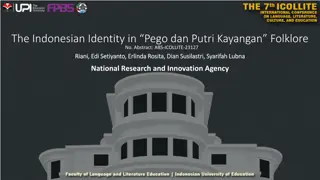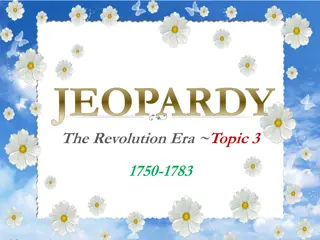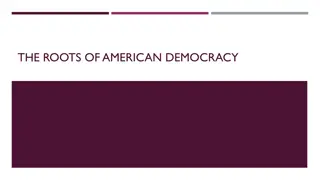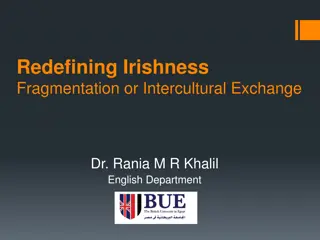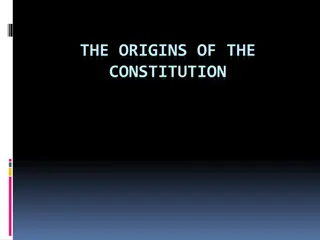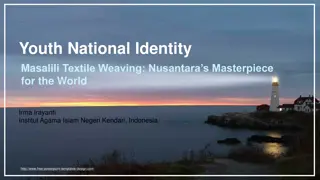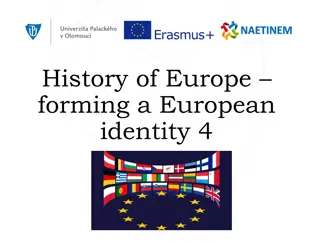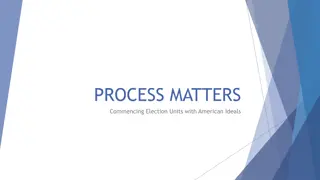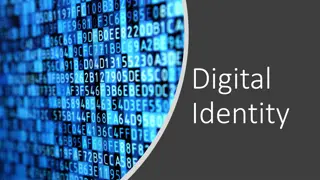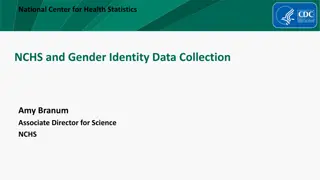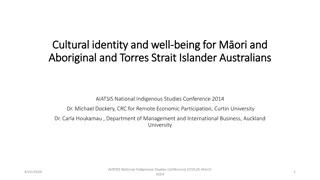Exploring National Identity and Revolutionary Ideals in European History
In this discussion, we delve into Karl Marx's beliefs in the Communist Manifesto, the lack of Communist revolutions in the 19th century, the role of national identity in societies, and the concept of imagined communities as outlined by Benedict Anderson. Through analyzing historical events and scholarly perspectives, we explore the constructs of national identity and revolutionary movements in Europe.
Download Presentation

Please find below an Image/Link to download the presentation.
The content on the website is provided AS IS for your information and personal use only. It may not be sold, licensed, or shared on other websites without obtaining consent from the author. Download presentation by click this link. If you encounter any issues during the download, it is possible that the publisher has removed the file from their server.
E N D
Presentation Transcript
1848 1848 And I wrote a book called the Communist Manifesto. It changed the world Not a particularly eventful year, except that All Things Bright and Beautiful was sung for the first time Oh also, there were Revolutions throughout Europe
Step one Step one Use the sources on the walls of the classroom to answer this question: What did Karl Marx believe would be the inevitable course of European history in the epoch of industrialisation?
Step Step two wrong wrong about the about the nineteenth two: : Understanding Understanding why nineteenth century why Marx Marx got century got it it With the brief exception of the Paris Commune in 1871 (March-May 1871) we search in vain for Communist revolutions in the nineteenth century History failed to obey Marx s instruction. For most of the time men did not want to overthrow their superiors or even climb in to their ranks AJP Taylor Hypothesis time: with reference to AJP Taylor (and your own knowledge of this course), why do you think this was so? Get in to groups of three you have three minutes to discuss. One lucky lucky peron will be selected from each group to feed back to the class. Think Academic English!!
Step Step three three: : was societies societies together was there there a key together in the in the age a key ingredient ingredient which age of industrialisation? of industrialisation? which glued glued The political glue we shall be exploring is national identity. In other words Behave like this! What Makes us .
According to my friend Ernest Gellner The dominant perception is that a man must have a nationality as he must have a nose and two ears (and that this applies to all humanity at all times). But this is not true. Having a nation is not an inherent attribute of humanity but it has come to be seen as such. What on earth do you think he means? In other words, though you may feel English or French or even Scottish, national identity itself is not natural. It is an artificial construct. Your very hard job: answer this question: qu est-ce qu une nation? Make a list or a mindmap in groups of three. Aim for as many defining features of national identity as possible. You have five minutes
Imagined Communities Benedict Anderson argues that nations are in effect imagined communities How far do you agree with him? Refer to your list or mindmap and discuss in groups of three
Question of the Day: Why and how could a concept so remote from the real experience of most human beings as national patriotism become such a powerful force so quickly? (Eric Hobsbawm) You will now be given a range of primary & secondary sources. You are going to use them to answer Hobsbawm s question (one paragraph: think EAL!!) You will work in groups of three. And give yourselves a number one to three Warning! This is a difficult work task. You need to work as a team in order to make developed inferences from the sources. As you work through the sources, you will be required to record your theories in discussion box 1, 2 & 3. Student one should lead the discussion (for box one), student two should lead the discussion (for box two) etc.
Planning Planning your your answer answer to question question to Hobsbawm s Hobsbawm s big big On the last page of your worksheet, fill in the box with three or four key words (or ideas) which you will be employing in your answer, You have five minutes to do this in your groups On the next slide are some bonus words (and ideas) which we can discuss as a class AFTER you have fed back
Why and how could a concept so remote from the real experience of most human Why and how could a concept so remote from the real experience of most human beings as national patriotism become such a powerful force so quickly? beings as national patriotism become such a powerful force so quickly? (Eric Hobsbawm) Progress (and paranoia) Competition Xenophobia Mass literacy Education Mass culture Democracy
H/W Write a one paragraph answer in response to Hobsbawm s big question
